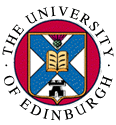
Division of Informatics
Forrest Hill & 80 South Bridge

Research Paper #522 | |
|---|---|
| Title: | Learning from am |
| Authors: | Ritchie,GD |
| Date: | Mar 1991 |
| Presented: | To appear in the Proceedings of the International Conference on Artificial Intelligence and Mathematics, Glasgow, April, 1991 |
| Keywords: | |
| Abstract: | Ever since the early days of computing, there has been keen interest in the question - "can computers make original discoveries?". In 1976, there appeared to be a very positive answer to this question, with the appearance of Douglas Denat's PhD work on the "AM" system, a computer program which generated concepts and conjectures in elementary number theory. That work attracted a large amount of attention, since it appeared to have achieved quite spectacular progress in producing "creative" behaviour by a computer program. Nevertheless, there has been very little subsequent work which builds upon that apparent breakthrough (although Lenat himself went on to create a successor system called "EURISKO" which seemed to perform feats of ingenuity). Careful consideration of why AM's performance seemed so astonishing, and why it was difficult to replicate or extend that behaviour, reveals some general morals about the methodology of artificial intelligence. It is these more general methodological issues that I wish to discuss here, using AM as an illustrative example. |
| Download: | NO ONLINE COPY |